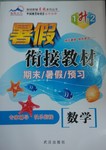题目内容
【题目】语法填空
Tsinghua University was established in 1911, originally under the name "Tsinghua Xuetang". The school was renamed "Tsinghua School" in 1912. The university section 1 (found) in 1925. The name "National Tsinghua University" was adopted in 1928.
Tsinghua University was forced 2 (move) to Kunming and join with Peking University and Nankai University to form the Southwest Associated University due to the Resistance War 3 the Japanese Invasion in 1937. In 1946 the university was moved back to its 4 (origin) location in Beijing after the war.
In November 1952, Mr Jiang Nanxiang 5 (become) the President of the University. He made a significant contribution in leading Tsinghua to become the national center for 6 (train) great engineers and 7 (science).
8 China opened up to the world in 1978, Tsinghua University has developed at a breathtaking pace into a research university. Tens of thousands of students have graduated from Tsinghua since its founding, among 9 are many outstanding scholars, excellent business persons and great statesmen 10 (respect) by their fellow Chinese citizens.
【答案】
【1】was founded
【2】to move
【3】against
【4】original
【5】became
【6】training
【7】scientists
【8】Since
【9】whom
【10】 respected
【解析】
【语篇解读】本文是一篇记叙文。主要讲述清华大学的发展史,以及目前清华大学的成就,培养了成千上万的优秀人才。
【1】 考查动词。根据时间状语in 1925可知,句子描述过去发生的事情,主语The university section与动词found是被动关系,且主语是第三人称单数。故填was founded。
【2】 考查动词。句意:清华大学被迫搬到昆明。be forced to do sth.“被迫做某事”,接不定式作宾语 补足语。故填to move。
【3】 考查介词。句意:1937年由于抵抗日本侵略的抗日战争清华大学被迫迁到昆明与北京大学和 南开大学组成西南联合大学。against“抵抗;反对”。根据语境,故填against。
【4】 考查形容词。original作定语修饰名词location,作定语用形容词。故填original。
【5】 考查动词。句意:1952年11月,蒋南翔先生成为清华大学的校长。根据时间状语In November 1952可知,句子讲述过去发生的事情,用一般过去时;主语Mr Jiang Nanxiang与become之间是主动关系。故填became。
【6】 考查非谓语动词。句意:他做出了卓越的贡献,引领清华成为培养伟大的工程师和科学家的 国家中心。介词后接动名词作宾语。故填training。
【7】 考查名词。and连接engineers和scientists作介词宾语,作宾语用名词形式,scientist“科学 家”是可数名词,根据语境用复数。故填scientists。
【8】 考查连词。句意:自从1978年中国向世界开放以来,清华大学以惊人的速度发展成为研究中心。 since引导时间状语从句。置句首单词首字母大写。故填Since。
【9】考查定语从句。“among are many outstanding scholars, excellent businesspersons and great statesmen”是定语从句,修饰students,关系词在从句中作介词宾语,指人,引导非限制性定语从句 用关系代词whom。故填whom。
【10】考查非谓语动词。“ (respect) by their fellow Chinese citizens”作定语,与被修饰与scholars、 business persons和statesmen是被动关系,用过去分词表示被动。故填respected。

 暑假衔接教材期末暑假预习武汉出版社系列答案
暑假衔接教材期末暑假预习武汉出版社系列答案 假期作业暑假成长乐园新疆青少年出版社系列答案
假期作业暑假成长乐园新疆青少年出版社系列答案【题目】选词填空
根据语境,用方框内短语的适当形式填空(每个短语仅用一次)。
have fun; dress up; play tricks on; gain; admired… for; in memory of; look forward to; look as though/if; take place; starve to death |
【1】The sports meeting __________________ (举行) next week.
【2】Millions of people __________________ (饿死) during the war.
【3】The monument was built __________________ (纪念) the little hero.
【4】There is no need ____________________ (化妆)—come as you are.
【5】We all __________________ (对她表示钦佩) what she had done.
【6】She __________________ (一直盼望) having a chance to pay a visit to Zhangjiajie.
【7】We've missed the bus. It __________________ (看来好像) we'll have to take a taxi.
【8】These children loved __________________ (捉弄) their teacher.
【9】I __________________ (结识了很多朋友) since I arrived.
【10】You'll be sure __________________ (玩得开心) at the party tonight.